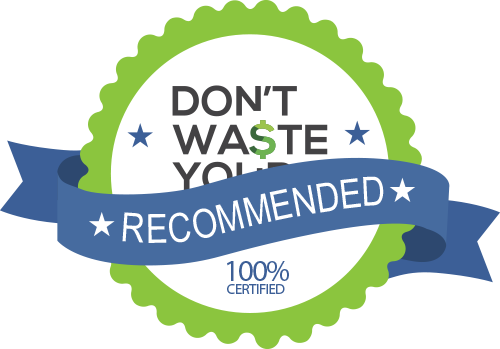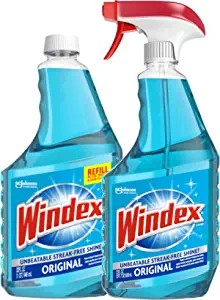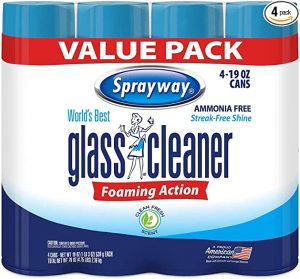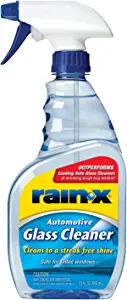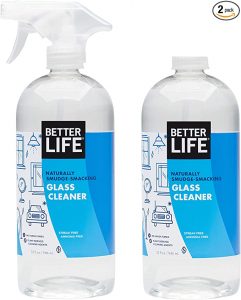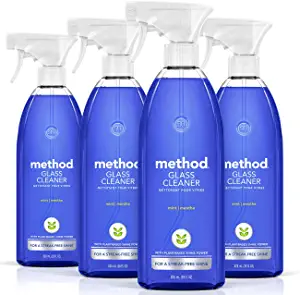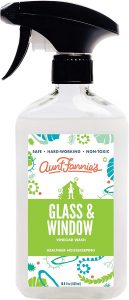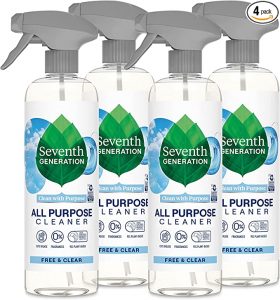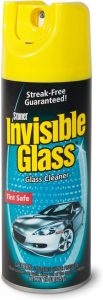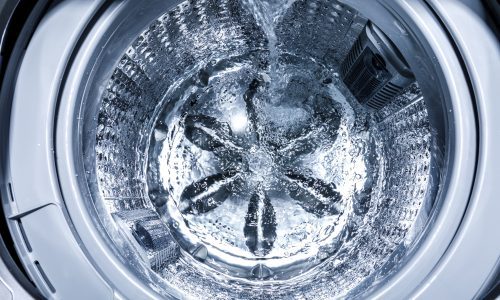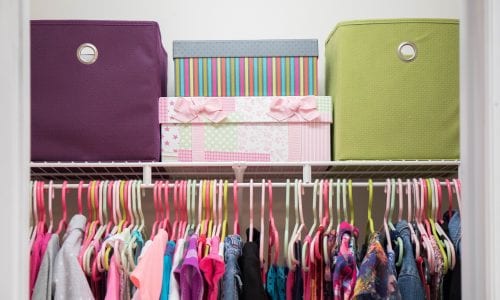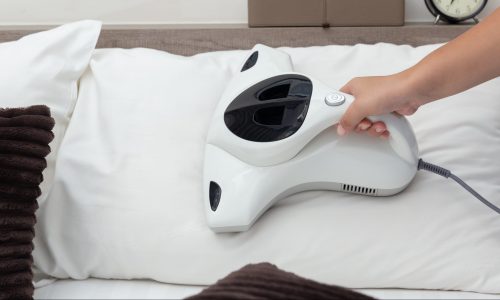The Best Glass Cleaner

Our Review Process
Don't Waste Your Money is focused on helping you make the best purchasing decision. Our team of experts spends hundreds of hours analyzing, testing, and researching products so you don't have to. Learn more.
Our Picks For The Top Glass Cleaners
- 1. Windex Original Blue Streak-Free Glass Cleaner Bundle, 2 Pack
- 2. Sprayway Ammonia Free Aerosol Glass Cleaner, 4 Pack
- 3. Rain-X Streak-Free Shine Auto Glass Cleaner
- 4. Better Life Natural Streak Free Glass Cleaner, 2 Pack
- 5. Method Plant-Based Mint Glass Cleaner, 4 Pack
- 6. Aunt Fannie’s Natural Streak-Free Glass Cleaning Vinegar Wash
- 7. Seventh Generation Free & Clear Biodegradable All Purpose Cleaner
- 8. Invisible Glass Residue Free Ammonia Free Foam Glass Cleaner
- 9. Chemical Guys Ammonia Free Streak Free Glass Cleaner
- 10. Glass Plus Ammonia-Free Multi-Surface Glass Cleaner
These blue bottles are a staple in many homes, for good reason. The formula is as effective as ever, wiping away surface dirt and leaving behind a streak-free surface. As a bonus for ec-conscious buyers, the bottles are made from recycled plastic.
Leaves No StreaksThis familiar formula wipes away clean.
The ingredients in this cleaner do a great job of breaking down grime. One ingredient you won't find, however, is ammonia. That means there's no streaks and also no unpleasant smells to deal with as you clean.
No Chemical SmellKeep your cleaning routine free of ammonia odor.
This cleaner is formulated for car windows but can easily be used indoors. It works great on bathroom mirrors or shower doors where stains can build up quickly. The shine left behind is impressive and it won't harm tinted windows.
Heavy Duty CleanerUse this cleaner in high-traffic areas.
There are no petroleum products or VOCs in this eco-friendly cleaner. The ingredients it does have do a solid job at removing streaks and stains. Just a little spritz is all it takes thanks to the effective spray mechanism.
All Natural IngredientsClean the glass and stay healthy with this product.
Buying Guide
You can do a lot with decor, but it’s really the windows that make a house feel like home. There’s nothing like looking out to see the sunrise from a nice, big picture window, but there is a downside to all that glass. Stains show up more prominently on larger windows, and when they do you need a good glass cleaner to take care of them.
Glass cleaners most often come in a spray bottle and can go on as a liquid or a foaming solution. Either way, you’re going to have to contribute a little elbow grease and wipe it off with a cloth or paper towel. The best glass cleaner, of course, is the one that takes the most dirt along with it — and leaves behind the least streaks.
When it comes to the choice between liquid or aerosol foam, there’s not really a clear winner. Foam tends to be more popular for washing car windows and outdoor glass because it can be more effective at removing thick, caked on dirt. It is generally more expensive though, and cheaper foam can leave behind stubborn streaks if not applied correctly. It’s also harder to make the most of each bottle since you can’t remove the top and get those last few drops.
Liquid is the go-to choice for home cleaners, since it’s more affordable and easier to use. Most liquid cleaners are a pre-mixed solution, but if you want to stretch your dollar you can find concentrated cleaners. With this type of cleaner, you simply add water until you’ve got a mix that works for you.
Whatever type you choose, check the ingredients. It can be tough to know what to look for unless you’re a chemist, but the chemicals glass cleaners use break down into two categories: Surfactants and solvents. Surfactants form a bond with dust particles or other stains and pull them away from the glass. The job of the solvents is to break down those particles and make them easy to wipe away.
Isopropanol and dimethyl carbinol are common ingredients on most household cleaners, along with plain old rubbing alcohol. You can also find ammonia on the ingredient list of old-school cleaners, though it’s less common now for many reasons. Ammonia is a very effective solvent and it also dries quickly, properties that make it perfect for a glass cleaner. On the other hand, you don’t want to use it on any other surface but glass. It absolutely shouldn’t be used as a car window cleaner since it can break down the structure of rubber seals and vinyl and do much worse harm to window tint. It can even break down granite over time, so it’s not a good fit for kitchen countertops.
Luckily, there are plenty of eco-friendly materials that can do the job just as well or better. Ethanol and acetone are fairly safe solvents that you can look for, along with vinegar. And there are a ton of plant-based surfactants that can wipe away the grime for your mirrors and glass without leaving behind a chemical smell.
What to Look For
Even the best glass cleaner can’t do all the work. You’ll need to do the wiping, and proper technique can go a long way. Avoid the temptation to focus on tiny spots and use wide, sweeping strokes. That will give the solution more chance to dry without leaving behind streaks.
Paper towels are always a good bet for glass cleaning, but if you want to conserve the roll you can go with a cloth. Microfiber is best, but standard dish towels will do the job. And believe it or not, old newspapers are also surprisingly good at wiping up glass cleaner. If you’re cleaning off car windows, a good squeegee will clear away the streaks and save you a lot of time.
More to Explore
Want your windows cleaned in a jiffy? If you can afford him, hire Terry “Turbo” Williams of the U.K.. He’s officially recognized by Guinness World Records as the planet’s fastest window washer, a title he earned in 2009 by bringing three 45-inch square windows to a sparkle in just over 9 seconds.
